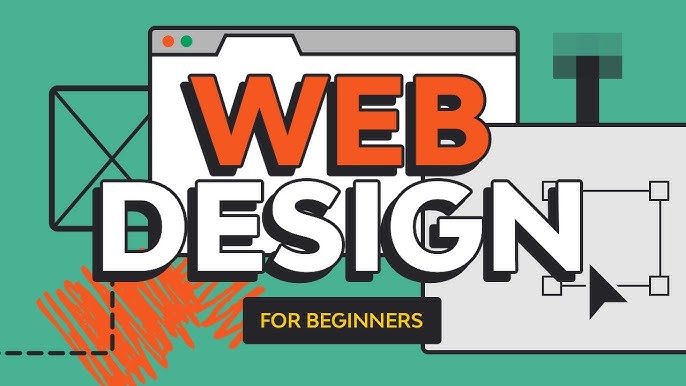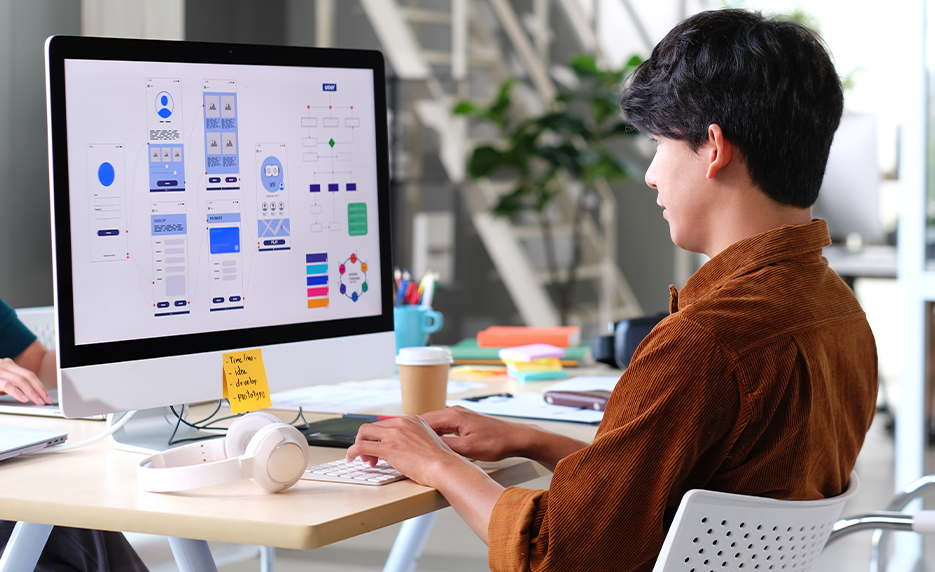Maximize Individual Experience With Ingenious Website Style Solutions
In today's digital landscape, making best use of customer experience via cutting-edge website style options is vital for businesses seeking to involve their audience effectively. By welcoming user-centric style principles, organizations can create user interfaces that not just meet user demands but also enhance overall fulfillment. Secret variables such as responsive layouts, intuitive navigating, and efficient aesthetic power structure play an essential duty in this process. The combination of interactive components can better boost the individual trip, triggering a reevaluation of standard style strategies. What methods might arise when we think about the evolving assumptions of customers?
Comprehending User-Centric Style

To implement user-centric style efficiently, it is vital to perform complete research study, including user meetings, surveys, and use testing. These research approaches give valuable data that informs design choices, making sure that the final item lines up with user assumptions. In addition, creating user identities can aid developers imagine and understand with the end-users, assisting the style procedure toward extra pertinent services.
In addition, repetitive style is a key component of user-centric techniques. By continuously screening and refining layouts based on individual responses, designers can determine pain points and areas of renovation, causing a much more polished final product. Inevitably, user-centric design is not simply a stage in the development procedure however a continuous commitment to focusing on user needs, leading to more efficient and engaging electronic experiences.
Importance of Responsive Layouts
As electronic interactions progressively occur throughout a variety of devices, the relevance of receptive designs can not be overstated. A receptive format ensures that an internet site adapts seamlessly to various display dimensions, from desktop computer displays to smart devices. This versatility is vital in today's multi-device landscape, where customers anticipate a constant and engaging experience despite just how they access material.
The primary advantage of receptive design is boosted customer complete satisfaction. When an internet site is optimized for all tools, it minimizes the demand for zooming, scrolling, or straight navigation, which can lead and discourage users to greater bounce rates. Furthermore, search engines like Google focus on mobile-friendly internet sites in their ranking formulas, making responsive formats vital for effective SEO strategies.
Rather of managing different variations of an internet site for various gadgets, a single, fluid layout can be changed, conserving time and resources. Eventually, investing in receptive layouts is not simply a trend; it is a fundamental concept of modern internet layout that substantially boosts customer experience and engagement.
Enhancing Navigating and Availability
Effective navigating and accessibility are critical components of a well-designed site, significantly influencing user engagement and complete satisfaction. An easy to use navigation framework enables visitors to find details quickly and without effort, reducing aggravation and raising the chance of repeat check outs. Implementing clear, detailed tags for navigation links, along with a sensible power structure, can direct users seamlessly with the site.
Access is similarly crucial, ensuring that all customers, despite their specials needs or abilities, can connect with the website effectively. This can be achieved via using proper shade contrasts, message sizes, and alt text for images, which with each other enhance the experience for visually impaired users. Including key-board navigation and screen visitor compatibility expands gain access to for users with varied needs.
Normal functionality testing can offer beneficial understandings into navigating performance and ease of access concerns. By collecting feedback from real users, developers can determine pain points and make educated changes. Ultimately, focusing on navigation and access not just cultivates inclusivity but likewise grows a favorable customer experience, strengthening the brand's dedication to top quality and customer treatment in an increasingly electronic landscape.
Using Aesthetic Pecking Order Efficiently
Aesthetic pecking order acts as a directing framework in website layout, directing users' focus to one of the most important components on a page. By strategically organizing visual parts such as typography, spacing, and shade, designers can produce a clear path for users to follow. This structure not just improves user experience but additionally enhances content understanding.
One efficient way to establish aesthetic hierarchy is through the usage of dimension and range. Larger elements normally attract even more focus, making headings and crucial visuals noticeable. Enhancing this approach with contrasting shades can even more differentiate primary web content from additional details, making sure that essential details stands apart.
Additionally, the arrangement of aspects plays an essential duty in directing individual interaction. Using a grid format can produce a natural flow, while whitespace helps to different content and minimize cognitive tons - Website Design. This deliberate spacing allows users to process information extra easily, leading to boosted engagement
Finally, utilizing regular design patterns helps enhance aesthetic hierarchy, supplying individuals with familiar hints as they navigate the site. By focusing on these concepts, developers can effectively take full click here to find out more advantage of customer experience, making certain that site visitors can easily find the information they seek.
Integrating Interactive Aspects
The consolidation of interactive aspects into web site layout can substantially enhance user involvement and total experience. Interactive functions such as surveys, tests, and sliders not only captivate individuals but additionally advertise active involvement, making the searching experience extra remarkable. By motivating individuals to engage, websites can properly maintain attention and lower bounce rates.
Additionally, integrating vibrant material like computer animations and hover impacts includes an enticing layer of interactivity. These aspects can guide individuals with ease via the website, highlighting essential info and phones call to action. For instance, animated buttons can draw attention and improve click-through rates.
Moreover, customization through interactive devices such as chatbots or referral engines permits websites to accommodate individual preferences, cultivating a sense of connection. This tailored method not just boosts user contentment yet likewise encourages repeat visits.
Integrating analytics devices to track website link communications offers beneficial insights into customer habits, allowing constant improvement of the interactive elements. Ultimately, a well-designed interactive experience transforms a passive browsing session right into an engaging trip, causing enhanced user fulfillment and loyalty. Consequently, incorporating interactive components is vital for maximizing user experience in contemporary site layout.
Final Thought

In today's electronic landscape, taking full More Bonuses advantage of individual experience via ingenious web site layout remedies is necessary for services seeking to engage their target market effectively. Eventually, prioritizing navigating and ease of access not just cultivates inclusivity but likewise cultivates a favorable individual experience, strengthening the brand's dedication to top quality and customer treatment in a significantly electronic landscape.

In verdict, taking full advantage of user experience with cutting-edge web site design services demands a commitment to user-centric concepts. Website Design.